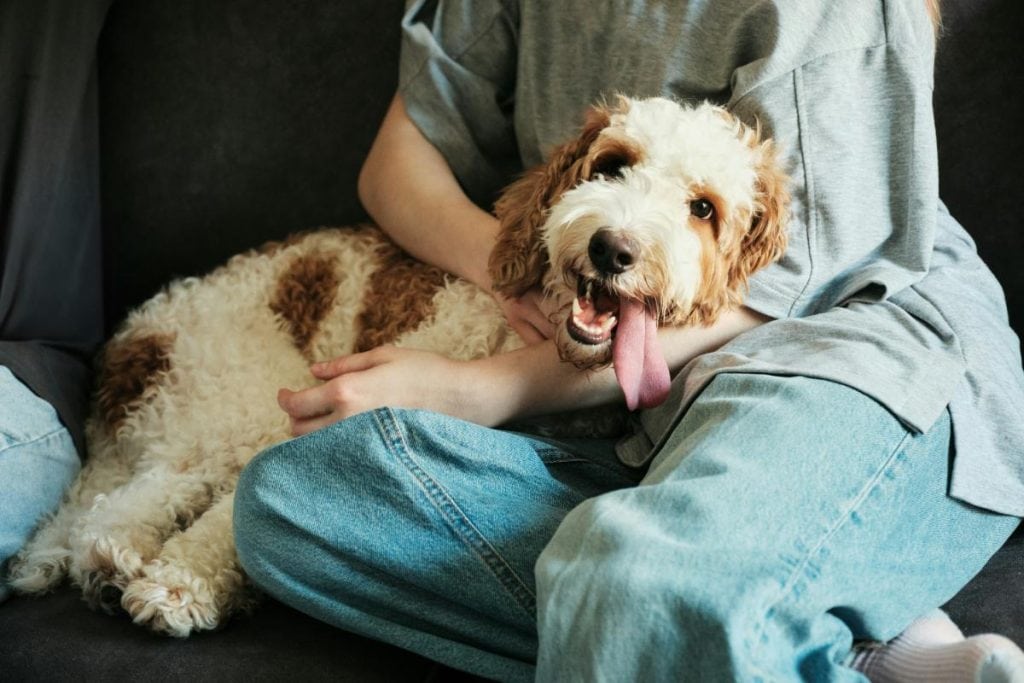
Living in a city comes with constant noise from traffic, construction, and bustling crowds. While humans may learn to tune out these sounds, our canine companions often cannot. Dogs are sensitive creatures, and the constant barrage of loud and unpredictable noises can wreak havoc on their emotional health. This stress and anxiety can manifest in various ways, affecting not only their behavior but also their overall well-being.
Recognizing the signs of noise-induced anxiety can be challenging for pet owners. Dogs don’t always exhibit obvious distress, but subtle behaviors like restlessness, panting, or excessive barking may indicate discomfort. Urban environments can also exacerbate conditions like separation anxiety or fear-based aggression.
Why Dogs Hear the World Differently and What That Means in Cities
Dogs have a unique auditory range, and hearing sounds at frequencies undetectable to the human ear. This acute hearing is a marvel of nature but can be a curse in a noisy city. Sirens, car alarms, and construction noises are just a few everyday sounds that can trigger stress and anxiety in dogs. For a dog, the city is a cacophony of sounds that keep them in a perpetual state of alertness, affecting their emotional and physical health over time.
The constant noise in urban areas can be overwhelming, even if the sounds seem harmless. For example, a car horn might cause a momentary jolt for a human, but it can lead to lingering stress and hyper-awareness for a dog.

From Hyperactivity to Withdrawal: How Noise Changes Dog Behavior
Dogs react to stress in various ways, and urban noise can cause a spectrum of behavioral changes. Some dogs become hyperactive, barking incessantly or pacing around the house without the ability to calm down. This restlessness is often a sign of anxiety, and when left unaddressed, it can lead to more severe behavioral issues. Other dogs may exhibit excessive barking, which is not just a nuisance but a sign of underlying distress caused by their environment.
On the other end of the spectrum, some dogs may withdraw entirely. They become lethargic, lose interest in their favorite activities, or refuse to eat. This kind of depressive behavior is equally concerning, as it indicates that the dog is emotionally shutting down. Both hyperactivity and withdrawal are coping mechanisms for stress and noise.
Noise-Induced Aggression: Not a Bad Dog, Just a Stressed One
Aggression in dogs is often misunderstood, especially when it is triggered by noise. Urban environments, with their continuous din of honking cars, loud conversations, and construction sounds, can elevate a dog’s stress levels. This state of chronic anxiety can cause even the most docile dogs to react aggressively when they feel cornered or overwhelmed. It’s essential to recognize that this aggression is not a sign of a “bad” dog but a reaction to an environment that feels threatening.
Dogs exhibiting noise-induced aggression may lash out unpredictably, which can be alarming for owners. The fight-or-flight response kicks in, and aggression is often a defense mechanism rather than an intentional act of hostility. If your dog’s aggressive behavior leads to a serious incident, such as a bite, it’s important to understand the legal implications and seek appropriate guidance. For those in need of legal support after a dog attack, consulting with a dog bite attorney in Illinois can help deal with the complexities of state laws and protect your rights. Together with professional training and intervention, addressing these behaviors early can create a safer environment for both dogs and their owners.

Noise Phobias: When Urban Sounds Become a Nightmare
Noise phobias are a severe reaction to specific sounds, such as thunderstorms, fireworks, or loud traffic. Dogs with noise phobias may exhibit extreme fear responses, like shaking uncontrollably, attempting to escape, or hiding in small, dark spaces. These phobias can develop gradually and, once established, are difficult to manage. With its endless stream of unpredictable sounds, urban living can exacerbate these fears, making life in the city a nightmare for affected dogs.
The key to managing noise phobias is to create a calm and secure environment for your dog. Simple steps, such as soundproofing your home or using calming pheromones, can provide some relief. In severe cases, working with a professional trainer or behaviorist is often necessary to help your dog overcome their intense fears. Building a safe space and minimizing exposure to known triggers can make urban life more tolerable for dogs suffering from noise phobias.
Restless Nights: How Noise Affects Your Dog’s Sleep
Just like humans, dogs require deep, restorative sleep to maintain their physical and emotional health. However, city noise can prevent them from reaching the restful stages of sleep they need. The sound of sirens, traffic, or loud neighbors can jolt a dog awake, leaving them restless and agitated. Over time, sleep deprivation can exacerbate behavioral problems, making it even more challenging to keep your pet calm and content in a noisy environment.
Chronic sleep disturbances are not just an inconvenience; they can have long-term health implications for your dog. Fatigue can lead to a weakened immune system, irritability, and increased anxiety. To combat this, try setting up a dedicated sleep area for your dog in a quieter part of your home, away from windows or heavy foot traffic. Investing in noise-dampening solutions, such as heavy curtains or white noise machines, can also help your dog get the quality rest they need.
Practical Tips to Make Urban Living Easier for Dogs
Urban environments can be overwhelming for dogs, but with a few thoughtful adjustments, you can make city living more comfortable and stress-free for your furry friend. Here are some practical tips to help your dog thrive in an urban setting:
- Designate a quiet retreat: Create a peaceful space in your home where your dog can go to feel safe. Equip this area with comforting items, like their favorite blanket or toy, to provide a sense of security.
- Use calming aids: Anxiety wraps or pheromone diffusers can help soothe your dog. These aids are particularly effective when combined with consistent mental and physical engagement.
- Engage in regular mental stimulation: Activities such as puzzle toys or interactive games are great for keeping your dog’s mind active and reducing nervous energy.
- Incorporate physical exercise: Daily walks or playtime in the park will help your dog stay fit and relaxed, even in a bustling urban setting.

Training Techniques to Reduce Sound Sensitivity in Dogs
Positive reinforcement training is a powerful tool for helping dogs manage noise anxiety. The process of gradual desensitization, where dogs are slowly exposed to low-volume recordings of city sounds, can help them build a tolerance to previously frightening noises. Each time your dog remains calm, reward them with treats or praise to reinforce their positive behavior.
Counter-conditioning serves as another effective approach. Associating stressful sounds with enjoyable activities, such as playing with a favorite toy or eating treats, can shift your dog’s emotional response from fear to pleasure. Consistency in this training is key, and enlisting the guidance of a professional trainer often proves helpful for achieving the best results.
